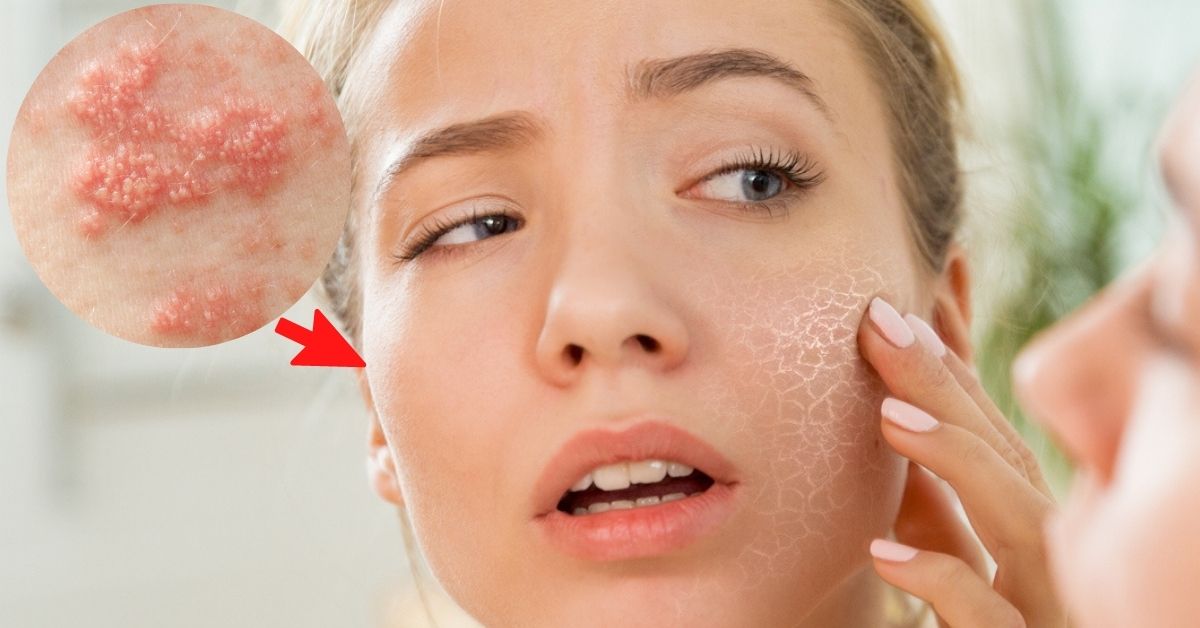It is said that a skin is sensitive when its ability to act as a barrier against external aggressions deteriorates, reacting to them with inflammation or redness. Although sensitive skin can be located throughout the body or in a specific area, the skin of the face is the most vulnerable, since it is the one that is most exposed to external agents such as UV rays, chemical elements and pollutants.
It is very important that we know how to prevent sensitive skin and, if we suffer from it, how to mitigate its symptoms and avoid actions that can make them worse.
One of the main causes is the loss of water and lipids, so the skin cannot regulate moisture and protect us from the elements outside. When the correct functioning of the hydrolipidic layer is altered, the characteristic symptoms of sensitive skin at any age may appear. However, there are two times in life when there are more chances of developing sensitive skin: infancy and old age.
Sensitive Skin Symptoms
There are a variety of symptoms of sensitive skin and we will name the following:
- Fine furrows caused by dryness.
- Matte appearance.
- Desquamation.
- Redness.
- Rashes.
- Swelling.
- Roughness.
All these symptoms can also be accompanied by sensations such as itching, burning, tension and stabbing.
Sensitive skin is highly reactive to weather, temperature, and chemicals contained in personal care products. For this reason, it requires special treatments that do not contain aggressive ingredients for it.
The skin has a complex and balanced system that allows it to stay healthy. If this balance is disturbed, sensitive skin appears. We are going to see how these alterations can give rise to this condition.
As we have seen, the epidermis contains the hydrolipidic mantle, which acts as a protective layer for the entire skin surface against all external agents. It has a slightly acidic pH, approximately 5, which allows it to be effective against bacteria or very alkaline external elements such as soap for cosmetic use. In addition, due to the characteristic permeability of this layer and its natural desquamation, it is possible to maintain optimal levels of hydration.
In both cases, the skin becomes more vulnerable to external agents. Babies, is because when they are born, they have much thinner skin than adults, even being a fifth thinner. Being less thick, its function as a protective barrier is weakened, not being able to react correctly against all external agents.
In the aging process, what happens is that metabolic processes and, therefore, lipid synthesis decrease in a general way. This lack of lipids produces greater dehydration of the skin, leading to sensitive skin.
Common causes of sensitive skin
Among the causes that cause sensitive skin, the most common are:
There are certain habits with which we believe we are taking care of our skin, and that may actually be harming it. That is why it is important that you know that some everyday gestures such as those listed below can cause sensitive skin or worsen this condition:
- Washing your skin too frequently or doing it inappropriately, such as using water that is too hot or products with aggressive ingredients.
- Mechanical or physiological exfoliations. These can be beneficial as they act on the hydrolipidic layer, eliminating dead skin cells and reducing wrinkles. However, on sensitive skin they can cause irritation.
- Shaving could be defined as an exfoliating action, so it presents the same risks as those explained above. In addition, when shaving we use cosmetic products such as foams or creams that, having left the skin more exposed, may be more affected by the chemicals they contain.
- Smoking, which in itself is very harmful to health, is associated with numerous dermatological problems such as acne or delayed wound healing.
Sensitive skin has two basic causes, one is that its surface barrier is weakened and the other is that the nerve endings in the skin are hypersensitive.
Tips for caring for sensitive skin
If we have sensitive skin, it is essential that if it is something serious, it is important that you visit a specialist who can prescribe the most appropriate treatment and monitor its effectiveness. In addition, we ourselves can take certain measures aimed at mitigating the state of sensitivity of our skin:
- Use creams with sun protection even in winter, since, as we have seen, UV rays have very harmful effects on sensitive skin.
- Implement in routine hygiene the use of products with active components capable of minimizing skin sensitivity, as is the case with glycerin. Soaps made with glycerin respect the pH of the skin and eliminate its impurities without being aggressive. In addition, glycerin retains moisture, thus keeping the skin naturally hydrated, a characteristic that makes soaps made with this ingredient particularly suitable for dry skin.
- Moisturizing the skin properly, especially that of the face, is important to improve its appearance and to protect it from external aggressions.
- Avoid showering with water that is too hot, as this contributes to dehydrating the skin. In addition, when washing our face it is also better to use cold or lukewarm water, trying to avoid hot water.
- Protect yourself from climatic aggressions, especially very cold temperatures, with appropriate creams and drinking plenty of water to ensure hydration.
- Rest well and avoid stress, as these are two factors that can make sensitive skin react.
- Eat a diet rich in antioxidants and natural oils, which help restore the balance in our skin.






